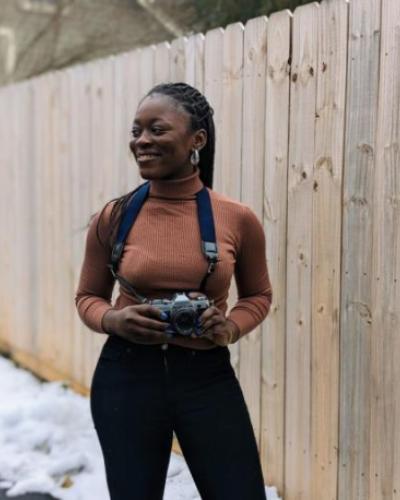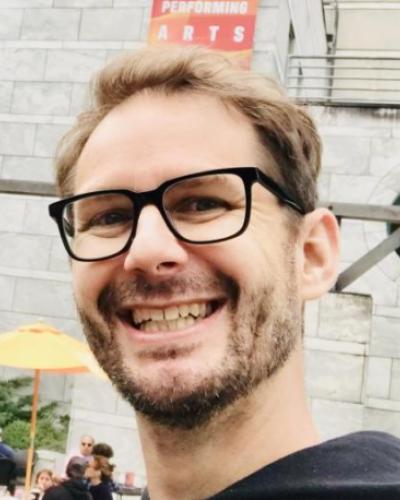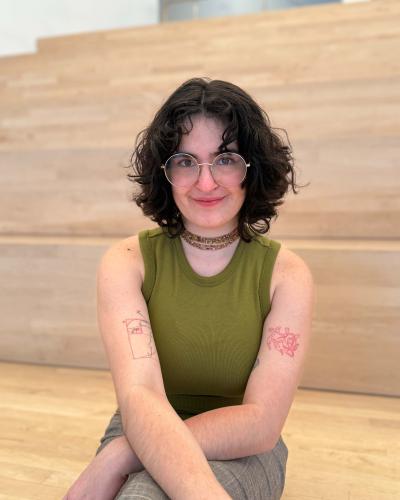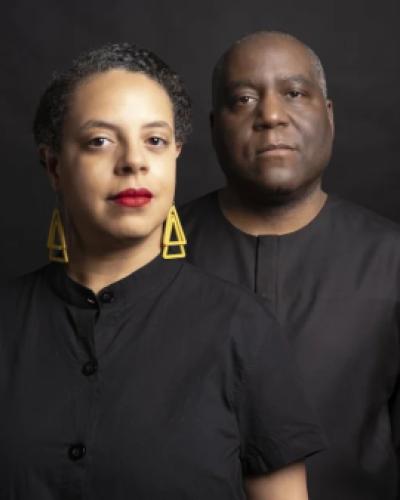AGIT Lab: Speaking Out of Turn (April 14-16) is an ensemble-based solo performance featuring seven women from varied backgrounds. Each woman provides a snapshot into her life while the group provides support for her narrative. Speaking Out of Turn uses traditional oral history story-telling and incorporates movement, soundscapes, and performance into the backdrop. Jayme Kilburn is a graduate student in the Dept. of .
What would you say is unique about AGIT Lab?
“It’s definitely different from other shows in the department because it’s experimental work. Mine was devised in a workshop where we did exercises involving telling personal stories to each other, so teambuilding stuff but also how to use our bodies and our voices to tell stories. Within that we started to share personal stories and then morph those into a show. So I think something that makes it really cool and different is it’s using stories of people in the department -- undergrads and graduate students, and we have somebody from the community -- and then weaving them together for really, I think, a very intimate night of theatre and very connected with the audience.”
Is your portion one continuous performance or is it vignettes?
“It’s sort of both, I guess. I would say it’s more vignettes but we are all acting in each other’s stories so it sort of moves from one story to another but there’s definitely a focus on one person through each story.”
Are you the same character in each story?
“The idea is we would write our own solo performance so just our own story. We tried to model it after this idea of a feminist story circle, just telling stories to each other, each person talks about a specific thing. Mine is about being bored and watching Neftlix and seeing a movie where some lady was really overweight and then she got skinny, so she took all of her loose skin and burned it and turned it into ashes and carried it in a vial around her neck.”
Is that a real movie?
“Yes, Melissa McCarthy is in it (laughs). I was looking for Melissa McCarthy movies and then I saw that. My story starts off talking about that but then goes into what happened when I spread my mom’s ashes and this idea of what you do with the ashes and being responsible for them and then sort of going into, 'I hope someday somebody will want to spread my ashes.' But it’s supposed to be funny, even though it’s sort of dark. That’s one specific story.
“Another person’s story is about her marriage and the time her husband said he didn’t want to be married to her anymore. Then Erin (Stoneking), who is one of the graduate students, her story is about working at this yarn factory and her boss always calling her into his office and asking her to eat pastries in front her. Yeah, it’s very weird. So these stories came about from us just telling stories and then everybody made a five minute piece and served as the director of their own piece.”
Do these stories have anything in common?
“There might be an underlying theme, but I don’t think there is an intentional one. The underlying theme was what is it like to be a woman, essentially, but I wouldn’t say it’s specifically, ‘this is what it’s like for me.’ There’s one story with an undergrad where she’s talking about her Native identity and the fact that everyone sees her as white but she’s actually Native American and she’s trying to navigate that because she doesn’t feel comfortable in either world.”
So, these are all “stories of women” simply in that they’re stories told by women?
“Yeah, I think the intentionality of it is to be very specific and very personal and to like make that connection with the audience as much as you can. So, there’s not one running theme. Some of them are very sad, I think. Or just, emotional, truthful. And some of the are funny. It’s a mixed bag.”
Why did you decide to use this approach for your portion of the show?
“Essentially I’m doing this because my studies is in feminist theatre and I read about these groups in the ’70s, ’80s, and ’90s that devised work and put it on. This idea of creating a feminist model that breaks free of the hierarchical model of theatre. The idea was to test it out. What is this like? Is this doable?
“My background is in directing and I’m very much the type of director that’s like ‘get here on time and be here all the time.’ Very hierarchical in terms of how theatre is usually done. So, my idea for this was let’s make room for people being absent, not make them feel bad if they have other things to do, and try to make it a space you want to come and put the emphasis on the process and not the product -- emphasis on the rehearsal instead of the performance. So it was an experiment for me. I think part of the whole thing right now is parity for women playwrights and this idea that women don’t have as much of a voice in theatre as men and so part of it is creating a different model that hopefully gets a woman’s voice across.”





